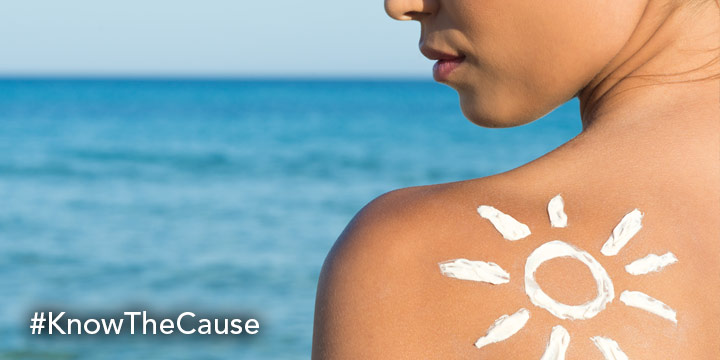

There is perhaps much confusion about the role that the sun plays in our health and vitality, and much misinformation likely abounds when it comes to the best way to care for our skin as it relates to sunlight exposure.
It is true that the sun can very seriously damage your skin and ultimately your health. Sun burns are painful and lead to skin cancer which––like other cancers––is obviously no laughing matter. The sun is also implicated in premature aging and damaging our skin to the extent that one can look older than one actually is.
Most of the advice today centers around avoiding the sun altogether in the interest of promoting health. However, for all the heat the sun has gotten for being detrimental to our health, what science tells us is that there are undeniable benefits for exposing ourselves to the sun’s rays.
How Does Sunshine Affect Your Health?
Sunshine benefits our health in a number of ways.
First and foremost, exposing bare skin to sunlight promotes the production of vitamin D, which is an important hormone for health. Vitamin D plays a number of roles in the body, from calcium absorption and maintaining strong bones to cancer prevention. Despite vitamin D’s importance in a wide variety of bodily functions, many people (particularly those who live in areas with little sunlight) are at risk for vitamin D deficiency.
Many foods contain and are fortified with vitamin D, but exposure to sunlight is one of the best ways to get enough of this vital nutrient.
Sunshine (or lack thereof) is known to influence mood, too. Perhaps you have heard of seasonal affective disorder, which is a type of depression that often manifests in late fall and winter. Lack of sunlight is implicated in this disorder, which is more likely to affect people living in areas with dramatically less sunlight during colder months.
What Is The Best Way To Care For Your Skin In Regards To The Sun?
Most dermatologists will advise you to always wear sunscreen. There are some benefits and also some things to be aware of in regards to sunscreen, which we have covered before. Sunscreen might be part of your strategy for skin health in regards to the sun, but likely there are other things to think about as well.
Doug Kaufmann’s best advice is that you would not hold a match long enough for it to burn your finger. Similarly, you should not expose your skin to the sun long enough without protection to burn it. Sunscreen can help towards this end, but physical barriers like hats, clothing and sunscreen or spending time in shaded areas can also be beneficial. Choose also to go outside when UV rays are lowest, and avoid the hours when UV rays are the most intense, often noon to early afternoon.
All that said, some sunlight exposure is beneficial to bare skin and is something we should all try to incorporate into our regimens. As little as 10-30 minutes a few times a week of sunlight on bare skin (without sunscreen) is likely enough to get proper amounts of vitamin D, depending on the tone of your skin. Having your levels of vitamin D tested are the best way to discern if you are getting enough sunlight.
After Sun Care
Often, even with the most vigilance, many people will experience a sunburn at some point in their lives. To that end, there are many products available to support skin health following sunlight exposure.
Pure aloe vera is likely among the best things you can use for a sunburn. For other products, be sure to read labels. It is shocking how many products may contain ingredients that might do more damage than good in the long run. Opt for all natural products when possible.
Diet too can play a role in skin health. Foods like fatty fish, avocado and olive oil are rich in good fats and vitamin E that are known to support skin health.
Ultimately, use common sense when spending time in the sun, but be equally cautious of avoiding the sun altogether.
Doug Kaufmann has written many books that cover a full range or health issues. Find out which of his books best suits you by clicking the button below.
Doug Kaufmann developed his diet after years studying the clinical effects of pathogenic fungi on the body. Fungi and yeasts can become parasitic organisms on and inside our body, causing health problems that can be difficult to diagnose. Learn more about the Kaufmann Diet, change your life and know the cause.
We encourage all visitors to this site to take some time and study these technical articles prior to initiating lifestyle changes, including dietary changes and to do so with their physician’s awareness and approval. The articles posted in this link are scientific and with few exceptions are taken from medical journals familiar to healthcare workers.
Looking for help assembling antifungal Kaufmann Diet approved recipes for breakfast, lunch or dinner? We have several videos, books and recipe write ups here on Know the Cause that will help your health journey. The recipes in this section are so good, you’ll feel like you’re indulging. No sacrifice needed! Enjoy.
© 2024 Mediatriton Inc. All Rights Reserved • Website by Skynet Solutions